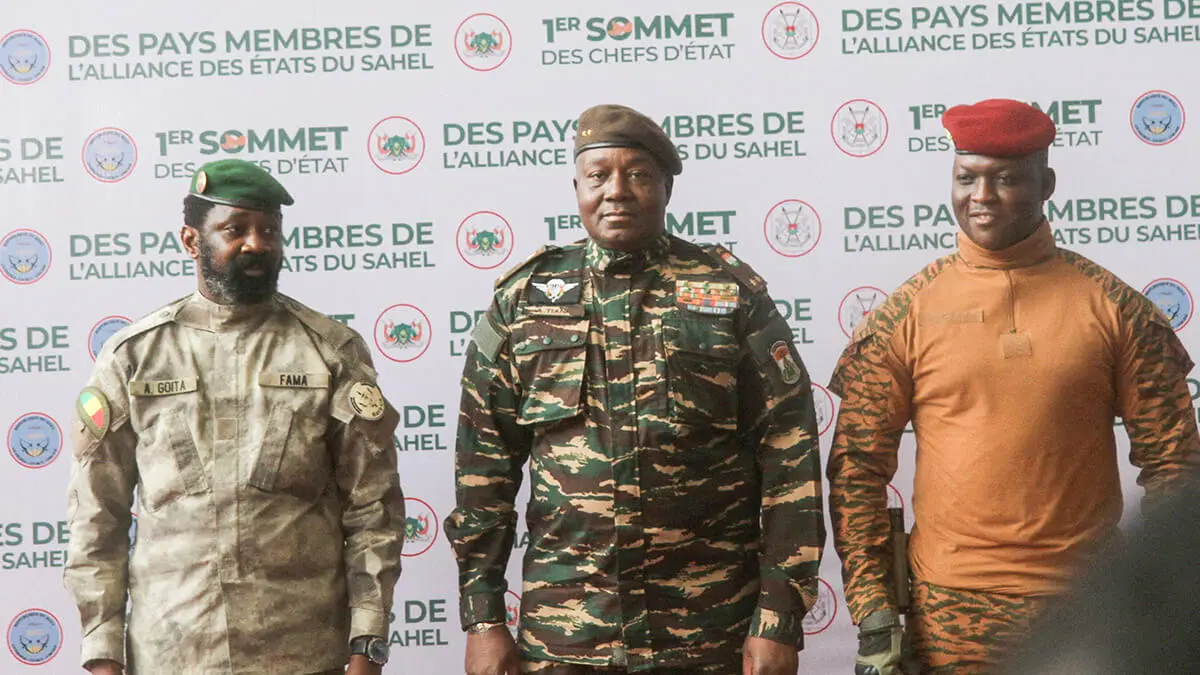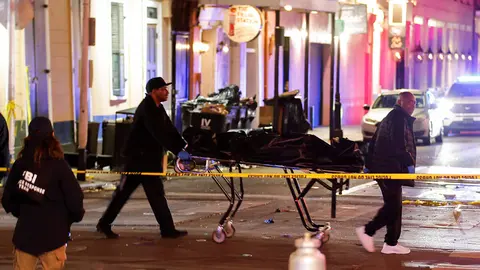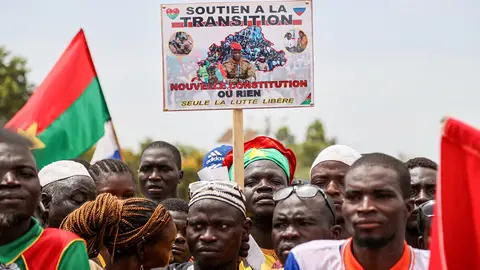Sahel countries plan force to fight extremist groups

Sahel reorganises to fight extremist groups.
Burkina Faso, Niger and Mali will create a 5,000-strong ‘unified force’ to fight extremist and terrorist groups.
The group will be formed within weeks, according to Niger's Defence Minister Salifou Mody.
All three nations are former French colonies where the military overthrew civilian administrations in coups between 2020 and 2023.
Following the coups, the three countries distanced themselves from France and last year formed a confederation, the Alliance of Sahel States (AES).
‘In this common space, our forces will be able to intervene together,’ Niger's defence minister, Salifou Mody, said in a televised interview, adding that the 5,000-strong force was ‘almost ready’.
‘This unified force will not only have its own personnel, but also air, ground and intelligence assets and a coordination system,’ he said, adding that it should be operational within weeks.
Combined, the three countries cover an area of some 2.8 million square kilometres, roughly four times the size of France, in northwest Africa.
They lie in the region known as the Sahel, which stretches between the dry Sahara desert in the north and the wetter savannahs to the south.
Each has been ravaged by attacks by jihadists allied with al-Qaeda or Islamic State (ISIS) for a decade, violence that governments have been unable to eradicate despite help from French and US forces.
‘We are in the same place, we are facing the same kind of threats, especially this threat from criminal groups. We have to join forces,’ Mody said.
‘This is new, original and will bring security to our territories and to our people,’ he said.
The three countries already conduct joint anti-jihadist operations, especially in the region where their borders overlap, where attacks are more frequent.
Following their coups, the three countries expelled French troops deployed to help fight jihadists, withdrew from the ECOWAS regional grouping, deeming it ineffective for their needs, and turned to new partners, including Russia, which is seeking to expand its influence on the continent.










